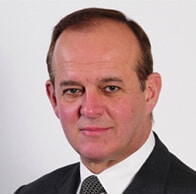“Executive Protection Agents: Do Not Post Pictures of Working Protection Details and Clients. We Must Always Protect The Client’s Confidentiality.”
When it comes to executive protection, clients are seeking more than just their physical safety. They also want a high level of privacy and confidentiality. Executive protection agents are essential to maintaining this privacy, and only unprofessional Buddyguard agents will threaten or diminish it. Protection agents must maintain a professional boundary with their clients and understand they are not there to drive up their own following or client base. However, they should always consider what will ensure their client’s safety and peace of mind in the moment and the future.
Fame-Hungry and Ego-Driven Buddyguards
In older generations of executive protection, the focus was always on the client. For instance, agents would ensure they were not photographed alongside the client during a red-carpet event. They were trained to avoid photos and refrain from posting images with the client on their social media platforms. Unfortunately, a new generation of protection agents lacks this ethos and instead prioritize their egos and narcissism, seeking to leverage their clients for personal fame. This behavior is highly unprofessional and poses risks by associating the client with a specific agent whose location may be more accessible for potential threats to ascertain than the client’s.
Such actions can lead to unforeseen dangers. For example, if an agent posts a picture with their client at the client’s residence, the image may end up on media outlets like TMZ or CNN. Consequently, the world could learn about the client’s home and location. These risks stem from protection agents seeking attention online or mistakenly believing that such postings will attract future clients.
The Luxury of Privacy and Professional Security
Instead of focusing on flashy and unprofessional behavior, a high-quality, well-trained executive protection agent fully understands the paramount importance of client privacy, which is equal to their physical protection. The best protection agents recognize that safeguarding clients from bodily harm is just one aspect of their role; they are equally responsible for protecting their clients’ confidentiality and privacy. This often involves signing confidentiality agreements with clients to prevent any public disclosure of their work together or sharing of their location while in their presence.
Clients expect their protection agent to prioritize their safety and security and not share their photos or personal information. Many clients will promptly terminate the services of an agent who posts pictures of or with them and may refuse to engage with the agency that employed them in the future. Only inexperienced Buddyguards believe that such actions will attract more clients. In contrast, seasoned agents understand that this is the fastest way to tarnish their reputation and diminish their client base.
Seek Outstanding Service From a Reputable Executive Protection Agency that protects the client’s confidentiality as part of their protection.
Another crucial aspect is ensuring that protection agents possess the right mentality and integrity for the job. Reputable executive protection agencies conduct thorough background checks, social media checks, and personality or psychometric testing to ascertain if the agent is suitable for this line of work and clientele. It’s evident that agents who post unprofessional pictures are motivated by narcissism and grandiose notions of their own importance. This behavior directly contradicts the integrity and maturity required for this vital role.
Maintaining professionalism at all times is a fundamental requirement, and protection agents must understand that their ego, image, or personal brand should never take precedence. They should prioritize their client’s privacy and confidentiality, considering how their actions can enhance or jeopardize these aspects.








